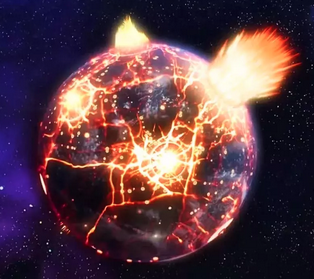It just had to turn it upside down!
jadero
- 3 Posts
- 20 Comments

 13·9 months ago
13·9 months agoWhenever I price something, I look at the whole package. If I like what a company is doing, I don’t mind paying extra to support them. Sometimes I win, sometimes I lose. With System76, I feel like I won.
They were the only company I found that was offering Canadians any laptop with Linux pre-installed. (I think Lenovo or Toshiba had something, but they weren’t available in Canada.) Having fought mightily with various distros on a wide range of hardware for years, it was critically important that my new daily driver not suck up my time just getting it running and keeping it that way.
Nearly 5 years later, the laptop is still going strong. On top of that, my hopes for their distro have far exceeded any reasonable expectations. I was prepared for the likelihood that I would ultimately need to switch to another distro, but their ongoing development and contributions to the Linux ecosystem have kept me on board and excited for the future.
In the end, I wasn’t buying a laptop. I was buying a system, and I’ve been extremely happy with the outcome.
That said, I suspect my next laptop will be a Framework. Again, it has less to do with the detailed specifics of hardware than in supporting a company in their attempt to do things the way I think they should be done.

 4·11 months ago
4·11 months agoIs that all? I bought my current laptop from System 76 3 or 4 years ago based on my perception that both hardware and Pop were mature enough to be the only computer in the house.
There have been some glitches along the way with the OS, but nothing to get excited about. Notably, I’ve never had to burn things to the ground and start over. :)
There are some ongoing annoyances with the track pad. I don’t know where exactly the problem lies but I do occasionally get cranky :).

 2·1 year ago
2·1 year agoThere used to be a CBC Radio program called “I Hear Music”. The host discussed and demonstrated the histories of various genres and their interconnections.
One of the standout episodes for me was the relationship between operatic forms, especially Wagnerian, and certain heavy metal forms. At the time, the community band I was playing in was rehearsing something by Wagner and I was having the same problem I always had with Wagner: I couldn’t find the music. I knew it was there because the music is always there, but I just couldn’t find it. And unlike previous exposure to playing Wagner, I couldn’t get away with just being technically correct with “buried” parts because I had a quite exposed passage that had to be music, not just notes in the right places.
I had enjoyed the stuff in my son’s metal collection, so after listening to that episode, I went back to that collection with new ears. What I learned there helped me find not just the music in the piece we were rehearsing, but all the other Wagner I hadn’t understood and more besides.

 1·1 year ago
1·1 year agoWhen I took scuba lessons in the late 1970s, we performed a similar demonstration in reverse. We filled a balloon on the bottom of the pool, then watched it expand and finally burst as it rose to the surface.
It was a very vivid demonstration of why divers with an air supply absolutely must never hold their breath while ascending.

 5·1 year ago
5·1 year agoThank you for sharing this! I’ve been looking for people who offer something other than hope, platitudes, and gentle transitions. Not because I’m suspicious of the “hopeful” position, or not only that, but to be fully informed on the issue of how to mobilize for concrete action.
I haven’t read much of the relevant psychology, but my reading of history convinces me that humans don’t act without an emergency. I see the challenge as being to help people understand that there is a real emergency, not a rhetorical one.
That, of course, is complicated by the fact that, in this case, the emergency isn’t really visible until the time to act has passed. That means some consequences are now unavoidable, which is something that human nature has difficulty grappling with. As a result, it’s very difficult to convince anyone, even those who are now living with some of those consequences, that the emergency can be anything other than rhetorical.
I agree. I have no idea what it takes to run publicly accessible services over the long haul. Hell, I can barely keep my sorry-ass website up!
I know that lemmy itself is pretty new, but I have to assume that the people who’ve been keeping SDF alive and functional for over 35 years know what they’re doing.

 2·1 year ago
2·1 year agoCould it be that Stacer and file manager are somehow reporting usable space instead of “absolute” space.
I recall from the early days that there was overhead in the process, so that useable space was always less than formatted space. Perhaps that is still the case.
I’ve got people around me who say we in Canada don’t need to do anything about CO2 emissions because, they claim, our forests absorb more than we emit. My response has always been “wait until they start burning.”

 1·1 year ago
1·1 year agoI first became interested in social and economic theories in high school (early 1970s). The books available to me were mostly pretty old, but I was also very interested in comparing what was said in those writings with what I could happening around me.
I read Karl Marx, John Maynard Keynes, and their detractors. Two things I took away from that reading are that the economy must serve the mass population, not the other way around, and that, at least within a capitalist system, the population does not contain businesses, but business people and those people are just a small fraction of the population. My conclusion was (and remains) that governments must regulate business to prevent them from gaining power and must structure taxes and public services in ways that ensure that society as a whole benefits from productivity gains, not just business people. I recently came across this article that is an excellent starting point for cherry picking the good stuff from both theoretical frameworks.
I then read from the Chicago School of economics and the people in various fields who advocated and argued against it. From that I learned that there are those who would elevate business from being a kind of useful servant of the economy and therefore of society to the objective of the economy and therefore of society. (Something that I’ve recently heard referred to as “neo-feudalism”.)
I read who I’ll call the “social justice warriors”. So civil rights leaders, feminists, prison and justice system reformers, unionists, education reformers, etc. The biggest thing I took away from that reading was that certain kinds of discrimination (say, Affirmative Action) can be temporarily justified as methods of reparation and correction of historical wrongs and the ongoing generational fallout, but that the primary goal should be the creation of a society in which privilege is not an accident of birth, health, or circumstance.
I read quite widely on ecology, but quite heavily on the difference between renewable and nonrenewable resources. It’s less obvious than most people think. There are obvious nonrenewable resources like fossil fuels, minerals, and metals, but a forest is not renewable if not harvested in sustainable ways. Going further, that forest is part of an ecological system and ecological systems are not renewable if overly disrupted, so sustainable harvest is not just about planting replacement trees, but preserving ecologies, and not just for display and recreation, but for regeneration. The places we dump our waste are also resources and their renewability is based on the nature and volume of waste.
Some more recent reading includes things like Shock Doctrine, which examines one aspect of how disasters can be leveraged by those with the resources to survive a disaster to further increase their access to resources at the expense of those without the resources to survive the disaster on their own.
Some of my favourite reading comes from those who argue against the doomers throughout history. For example, it’s trivial to find someone who says Malthus was wrong, but very difficult to find anyone who actually argues against the foundational thesis that populations, including humans, grow to the limits of available resources. That is, breaking new ground, literally or technologically, can never be more than a temporary solution. Likewise with respect to everything from social service programs and the failure of critics to properly account in detail for the actual sources of profits associated with privatization.
For defining and constructing societies that serve people, I think the best writers are found among the science communicators, especially those who focus on how to communicate science. They describe the methods by which knowledge is gained, validated and updated, and disseminated.
So that was pretty long on text and pretty short on specific recommendations. Some of that is bad memory, but mostly I don’t actually find many writers addressing what society should look like, only that this one ain’t it. Even thinner on the ground are those who address foundational solutions rather than specific changes in one element.

 1·1 year ago
1·1 year agoThere probably is, but I haven’t found it yet. I realized pretty early in the game (in human lifespan terms) that our the solution was not to be found in technology but in the structure of society.
In the long view, technology has always advanced, sometimes in “pure” terms, sometimes in response to situations, and sometimes in service to one ideology or another. So there is a sense in which the technology takes care of itself.
What doesn’t seem to take care of itself is society. It’s my view that useful social structures are constructed in opposition to human nature. Individually, we are largely slaves to intuition and a variety of cognitive biases, not least of which is the difficulty of separating a sequence of events from a true causal chain. We tend to embrace ideology, which is about doing what we wish would work, rather than doing what does work.
The great projects of the Renaissance and the Scientific Revolution it engendered started paying clear and obvious social dividends following the Second World War in the wake of critically important foundational work done during the Great Depression. We were starting to make progress on global issues by the 1970s and then something derailed us.
I don’t know what the underlying causes were, but it took only a couple of decades to turn the clock back, possibly as much as a century on some measures. One of the things that gives me hope is that maybe that quick reversal is evidence that we can do it again, but this time in a direction that makes things better.
For myself, I’ve all but dropped trying to address climate change directly (except in my own life) to focus on the larger project of social change. That is my nod to “long history” because I’m old enough that whatever happens to the climate and its impact on me are basically baked in. Thus I’m trying to do what I can to get people around me to start moving toward a more just, equitable, tolerant, evidence-based society.

 1·1 year ago
1·1 year agoI think you have a view of time and history that is quite rare. You seem to be using centuries as your unit of measure where very few people can get to even decades as the unit of measure. On your time scale, or larger ones up to and including evolutionary or geological time scales, it’s relatively easy to conclude that “in the fullness of time” will “solve” the problem.
On ordinary time scales, where people look at the next 100 years at most, disaster is looming. That loss of life, major economic depression, and those wars you seem to shrug off as “business as usual” is exactly what is fueling their anxiety. Many of those people would say that your “fullness of time” view is actually a big part of the problem because it looks like complacency and can in fact foster complacency.
On top of that, few people do anything other than linear extrapolation based on recent data. So where you see little blips on a trend line, they see a continuation to infinity of whatever seems to be happening now.
And, of course, there are even people like me, who think that it takes coordinated effort at all scales from individual behaviour to the creation and honouring of global treaties to solve the problem. We already have plenty of those practical people you speak of and we now know that they are all but useless unless we can all agree join them. And we haven’t and aren’t. In that view the tipping point was c. 1980 and we’re now so far over the cliff that the creation of the right kind of society now looks like a pipe dream. Which means that only a “black swan” event or technology can save the day. Hardly the stuff of optimism.

 4·1 year ago
4·1 year agoI think that the test systems I helped set up for my clients made it pretty obvious that they would have run into a variety of problems had we not done something. Most issues would not have been business ending, but there were a couple that would have made life quite interesting for a few months.
Preventative action is always tough to justify, because it always looks unnecessary when it works.
Did you try logging in anyway? Maybe their email notification glitched. I’ve signed up a few places without providing an email, then come back a day or two later to find an active account.

 2·1 year ago
2·1 year agoThat reminds me of when I was in an underwater hockey league. When we started, I was one of the stars because I could stay down for a minute or so, working pretty hard. But once we got proper coaches, I was quickly turned into a bystander because I didn’t have the team awareness to be remotely effective in what I called the “bob and breathe” technique of keeping a constant rotation in a passing game.

 41·1 year ago
41·1 year agoI mostly agree, but I’ve seen elsewhere that the fediverse (or some corners of it) were set up with the explicit intent to be ad-free and privacy respecting.
My opinion is that it all comes down to two things:
- Will Threads respect that intent?
- Given the difficulty of moderating content, can we handle the expected volume?
The answers to those questions can guide the admins (and us, I guess) in the decision.

 11·1 year ago
11·1 year agoEdit: this comment changed my mind. In a nutshell, if we can’t keep a large instance controlled by “the enemy” from destroying what we’ve got, then we just have to do better next time.
Yes, I would. Even if they are administered by people that have the best interests everyone at heart, sheer size means that they must be taken into account as the tools and clients evolve over time.
It’s not that the system itself should be unable to cope with large instances, it’s that the only reason for the system itself to gain that capability is in response to the rise or introduction of large instances. Some of what I’ve seen discussed is the need to change the development roadmap to accommodate the seemingly unexpected rise and possible introduction of very large instances. In other words, those instances are already controlling the direction taken.

 71·1 year ago
71·1 year agoEdit: this comment changed my mind. In a nutshell, if we can’t keep a large instance controlled by “the enemy” from destroying what we’ve got, then we just have to do better next time.
I have been making a related point that we should be concerned about any instance capturing too large a fraction of the space. I’m less concerned about the fact that it’s Meta than I am about any one instance having a critical mass that gives them a controlling interest.
History has shown that those with a controlling interest eventually use that control for their own benefit.
That’s why I joined a small collection of focused instances and try to subscribe to communities that are hosted in their “natural homes” instead of those on generic instances.
If you’ll accept early 20s as childhood (I do!) then me too! :)



Me too, on the VIC-20.